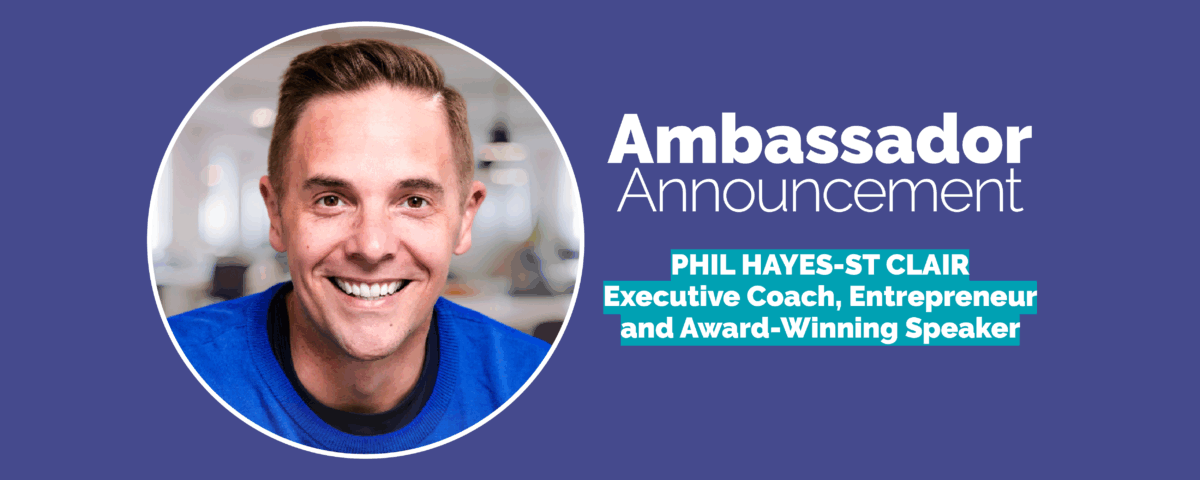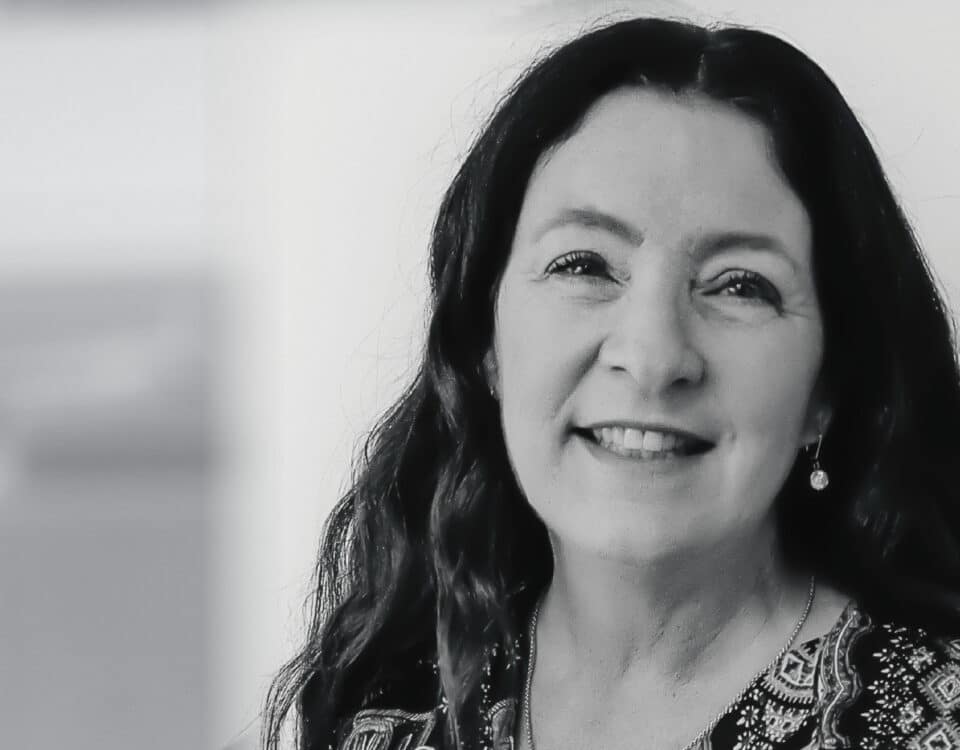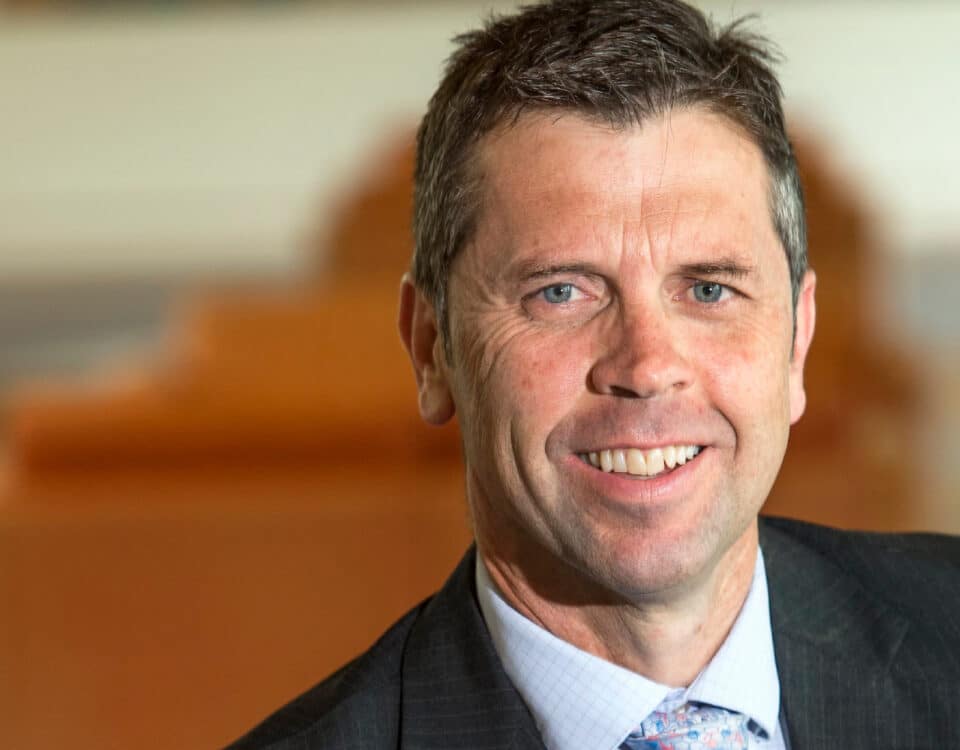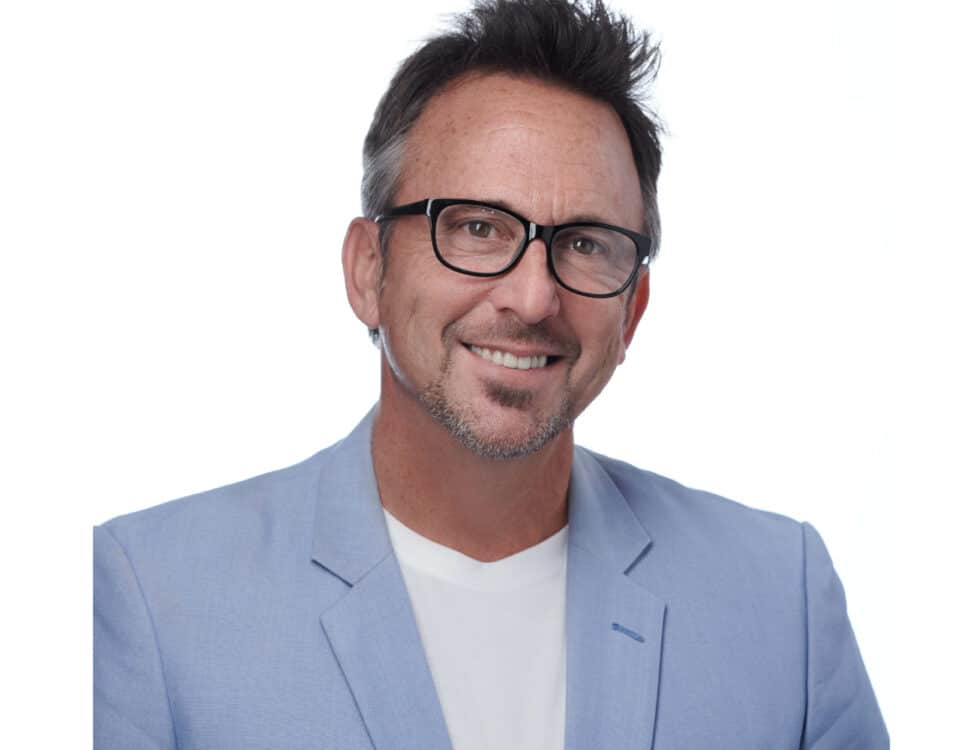As a serial entrepreneur with a focus on gender equality and the power of partnerships, as well as a long-time friend and mentor at Rare Birds, Phil was top of the list when it came to selecting our Ambassador for 2025/26. He wants to see women and girls surge ahead in terms of financial independence and effective healthcare and provide the men in their lives with ways to have those supportive conversations and mindset shifts that need to happen. Because a fair and equitable society benefits everyone of every age, and Phil is here to bang the table and get things done.
Throughout his tenure as Rare Birds Ambassador, Phil will be a powerful advocate for the work that we do at Rare Birds, spreading the word about our programs and bringing more mentors and women entrepreneurs into our community.
You might be wondering: why a male Ambassador?
Right from the start with Rare Birds, Founder and CEO Jo Burston wanted men at the table. She doesn’t want to run a women’s organisation for women, by women, with women. Because the bubble doesn’t work. The bubble is the problem. So we don’t want to just create another bubble. We need diverse voices. And we’re really glad that Phil is at our table, along with the thousands of other men in our community.
We sat down with Phil for a chat about why he said yes to being our Ambassador and his vision for what comes next.
How would you describe your (long-time) association with Rare Birds?
I would describe my association with Rare Birds as magical. For a couple of reasons. Jo and I met by accident. I had sought her help with a completely different problem to what we now focus on here at Rare Birds. I was building a new venture at the time and I knew I needed female software engineers to help build our product, because the audience we were building it for was easily 40% female. I was already aware about how much bias is baked in when you design with a bunch of men. And I just had this fear that I was going to miss out on really important perspectives, ones that I was convinced could only be shared by women. So I reached out to her on LinkedIn and asked her if I could get some of her time.
When I walked into her office, she stood up to shake my hand. And of course, you know, she’s a statuesque force of nature. And the first thing she asks is what are you working on? And before I’d even finished explaining it, she went to the app store, downloaded it, and started playing with it – in the first two minutes of our conversation.
And she says, “Yeah, cool. So what can I help you with?” After I explained she said, “So I can give you the good news and the bad. The good news is that there is potential for the ask that you have, which is to find female software engineers. The bad news is they don’t exist, but I’m wondering if you’d like to help me change that.”
And that was the pitch within 10 minutes, essentially. And I said, sure, let’s do that. Not knowing anything about Rare Birds – what the mission was – I just had a very strong instinct that this woman standing in front of me, who was articulate, passionate, and knew what the problem was, I just thought she was in need of followers who would come in behind her and be able to bang the same drum. And it’s just been just the most immense pleasure!
And fast forward to 2025, I’ve mentored through Rare Birds more times than I can remember. The one that stands out for me the most is Sarah Collingwood [from Four Winds Vineyard], who I met through an event that we did in Canberra for Rare Birds. She won a scholarship to receive a 12-month mentoring program and I remember looking at the finalists that Jo and I were there to award prizes to, and she said, “So, would you like to work with one of these women over another?” And for some reason, there was something about Sarah which was, you know, just really, really fascinating. She knew her numbers. When she was talking about her business, she was so numerate, and she was so passionate, and just clear and calm, but she also had this sort of cheeky, ‘I love doing what I’m doing’ energy about her.
What ended up happening as a consequence of that is that I learned an enormous amount about the wine industry, about viniculture, came to know her husband, John, extremely well, got to know her kids really well, and when our year of formal mentoring finished, our families became really close friends, and they’ve stayed at our house, we’ve stayed at theirs, they’re the reason why we own pets now, because they somehow cajoled us into doing that with them, and they’re just the most spectacular family, and I would never have ever had any reason for my path to cross, had it have not been for that relationship.
So I think they’re just two very small examples as to why I consider this magical.
There is still so much work to do to, in particular with men, to arm them with the knowledge and the language to be able to have sometimes tricky conversations with young women, and girls who have just come out of school, going to their first jobs, setting them up for success, showing them what great looks like. And knowing that whatever impact we’re going to have now, we probably won’t see the fruits of that until 20 or 30 years down the track, whereby hopefully we’ve left an indelible mark on the way that they think about working and living and paying it forward so that the movement that we’ve created here is going to live on for a long time.
What is your motivation for supporting the work we do?
I am driven by a desire to help people not go it alone. I joined the military straight out of school. I thought that that was going to be my entire career. I was there for six years. My parents were very worried about me selecting that career and fortunately or not, I had an eye condition I never knew that I had that made me unserviceable. It took me years after that to try and work out what my purpose was. I had found a really fantastic brotherhood, and I say that in the true sense of the word camaraderie, which was extraordinary. So I went hunting for that elsewhere, but couldn’t really find it.
I ended up doing some interesting work in banking and finance and then started to build companies. What I found was, and maybe this was a trauma response from having to leave the brotherhood that I really loved, but it was really about, you know, how do you create a culture of individuals amongst individuals to help them sort of push the needle forward together in whatever you thought was important. In everything that I’ve built in my career, and personally as well, people refer to me as a community builder. So when it comes to what I built company-wise, it’s been because I’ve sought out somewhat methodically the people who I thought could create the next level of impact together through a partnership. With people and companies all around the world that really couldn’t do what was ultimately achieved by us joining forces.
And so for me, my mission is to make sure that beyond creating fantastic opportunities for my daughters and for my wife working side-by-side with her, it’s really about showing people that we are always better together. That you can hold an intention and in both hands have the fact that you can make a lot of money and you can do it together. And you can push a social movement forward and you can do it together.
I think the most important part about that is that when we’re having this chat in August of 2025, the world is not in great shape. I think that the antidote to much of this is a fantastically optimistic view of conversation and discussion. Really productive, respectful argument, and just finding a way to hold space for everything that we have. Because the reality is we’ve always done this. It’s just that over the last 15 years, 20 years, maybe, the world has become more divisive, and we’ve just got to find our path back.
How does gender equality advocacy show up in your life? What are some examples of actions you have taken or projects you’ve delivered?
Pretty significantly. As a scientist, as somebody who has spent a lot of time in healthcare and biotech, there are some absolutely frightening statistics and numbers around how women’s health in particular was ultimately left behind because of its perceived complexity. And, you know, it’s 2025! The birth control pill came out in 1961. It was endorsed and started being used as a consequence of two very courageous clinicians who had to move outside of the United States to do the trial to prove that it was something that was safe. And then we fast forward into all of these different arenas where there are attempts to try and improve things like, you know, safe childbirth. And to look at conditions that were affecting women everywhere. And whether it was misogyny or whether something else was going on, it was just put on a back burner time and time again.
I look back at the role that my mum played in my life, which is significant. She’s 80 years old this year. She is just the bastion for me of raw tenacity and complete compassion. And when she has gone through the things that I now know she has gone through, and I have a scientific knowledge to understand the implication of that for her, everything from menopause, which all women will visit, through to traumatic surgeries that she had, through all of the things, I look back on that and just know that there was not even close to the amount of healthcare and innovation available to her. Nor to the generations of women that were before her or the generations of women since then up until now who just don’t have access. And so I have no problem whatsoever in banging the table and drawing attention to the fact that we have such an amazing ability to leapfrog the last 90 years in a way that is going to be so immensely productive for every generation of women to come. It’s just really, really important to me that we see that happen.
I have many female friends and colleagues who have to go through such trauma in their own lives just to show up. Where it shows up the worst is when we get the age of 45 to 55 as men and women. We are in the busiest time of our lives, right? We are parenting up, we’re parenting down, we’re trying to show up calm, cool, and collected to every aspect of our lives. And the worst thing that men have to deal with, frankly, at that point, barring any kind of major health condition, is the fact that they realise that they’re probably halfway through their life, and so they end up with a midlife crisis.
Meanwhile, all of the women in our life are going through perimenopause or menopause, they’re fighting a whole range of conditions, they’re carrying the load at home, they’re trying to also lead, and then they’re left to make this bizarre choice of having to either maintain a career or to be at home and do what they need to do, and each to their own. But, you know, when it comes to having the choice and being able to balance both, and for men to actually be great, genuine partners, so that you’re sort of co-captains, as opposed to husband and wife or partner and partner.
There is something there which we’re missing, and where it really falls apart is we’ve got to solve some really wicked problems. But we need women’s minds in these problems, and we are fundamentally selecting them out of participating in solving those problems, because they have to go and try and help themselves get through this really arduous time. It’s just madness.
So from my point of view, having a scientific understanding, which is enough to be dangerous and not enough to go and practice medicine, I know enough to say that I can educate men to understand more about this stage in life, and that is outside of the executive coaching work I do with CEOs and how I teach people around business to grow. It’s about saying to men, hey, listen, there are a couple of small things you didn’t really know. Here’s the cheat sheet. Get your head around this, and whatever stage your marriage, partnership, relationship is at, it will increase its goodness by 50% just by you knowing these things. And I think that’s really important.
What do you aim to achieve through your role as the Rare Birds Ambassador?
I would love to see 10,000 women and girls make a declaration to be independently wealthy. And the reason I say that is because there are too many structures in the world right now which create the inverse of that, where they don’t have the opportunity to have the confidence that comes with being independently wealthy.
And I know that sounds capitalistic and I appreciate that that sounds, well, does that mean I have to go and start my own business? It actually doesn’t. But what it does mean is that to ensure you can safeguard your health, your well-being, and the future of whatever your future is going to be. I mean, none of us can tell what our futures are going to be, but not leaving that to chance is super, super important.
And I am very, very keen to see that become something that’s real, because there are so many options to enact that, right? You could do entrepreneurship, you could learn how to start a side hustle, you could make money on the side doing whatever it is, you could revisit your ambition around career and what that means for savings and building a portfolio of assets that will work over time. But it also means that you can start from nothing, right? And you can start that journey, and it’s not an easy one to take. I know I run the risk of sounding patronising when I say that, but I think that the focus on financial independence – even if you are with a partner – is really, really important.
We have the chance, at Rare Birds, to help women and girls understand that being independently, financially stable is something within the grasp of everyone. It takes little steps, but they compound, and having that mindset in and of itself is a massive step forward. And I’m very keen to work with all the mentors, all of our supporters, to land that so that we are laying a foundation that can be built on in the future as well.
If you’d like to get to know Phil and his work a little better, head to his WEBSITE




